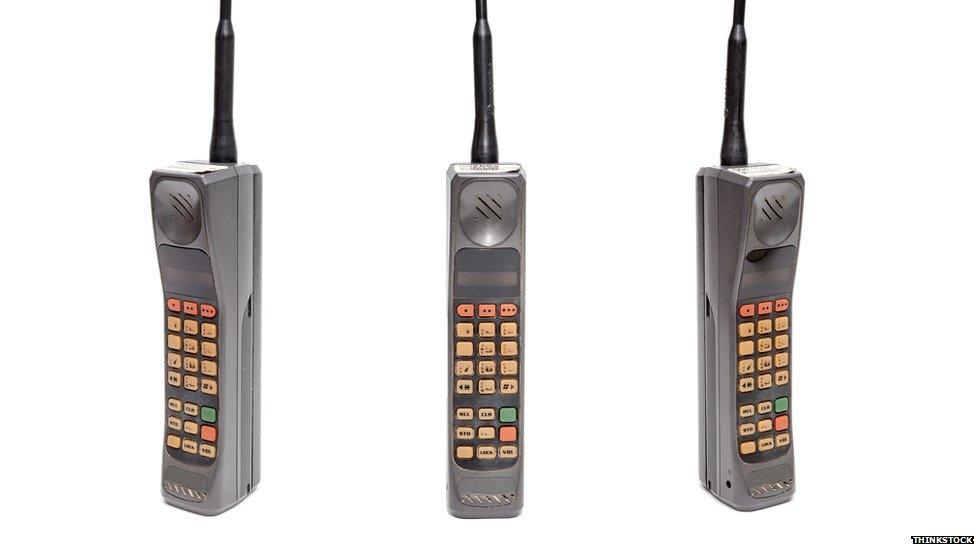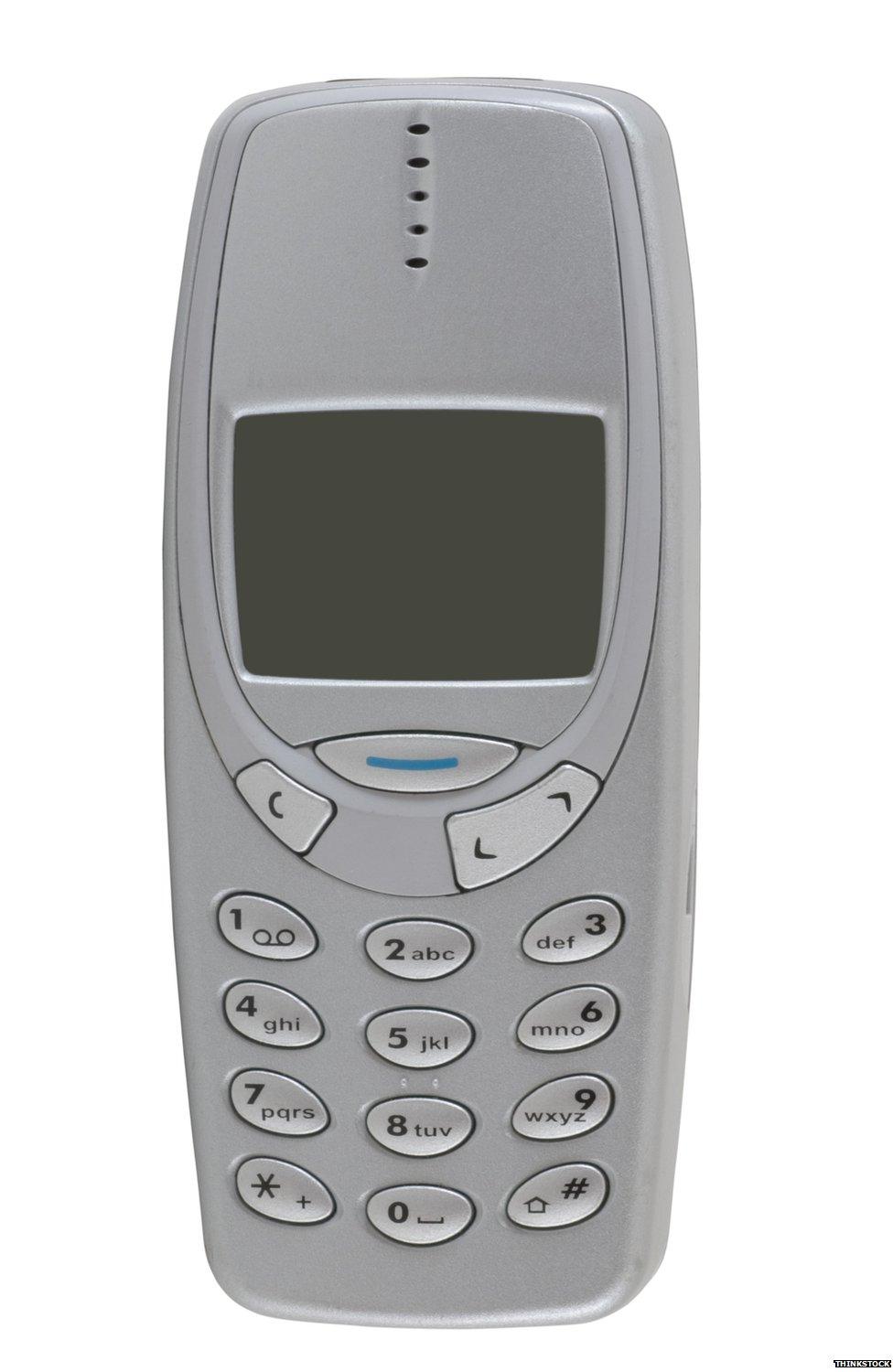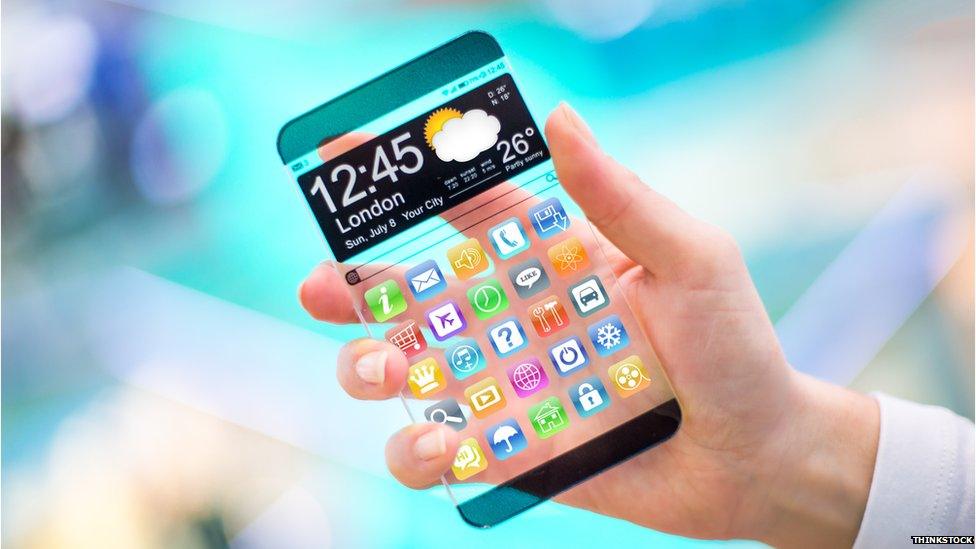What 2G, 3G, 4G and 5G actually means
- Published

Ranked 54th in the world for coverage, the UK's 4G "needs to improve" according to the communications regulator - but what does 4G even mean?
In a nutshell it stands for "fourth-generation" and the European Commission (EC) says it should be able to download a one-hour movie in six minutes.
But there are no national or international standards for mobile data speeds.
1G, or the first generation of mobile data, was introduced in 1991.
As was 2G, but it was 1G's digital brother.
You could only really make calls on 1G
It was analogue and the phones looked a bit like this...

Then 2G introduced text messages
Known as an SMS, 2G made it possible to send text messages between friends.
There were also picture messages called MMS (multimedia messaging service) brought in with 2G.
And also GSM, GPRS, EDGE on mobile phones like this one.

Video calling became a thing in 2001
3G and its 2mbit/s (or 0.25 megabytes per second) data came in at around the time the first wave of smartphones arrived in shops.
It's not that fast but it gave wireless access to internet which was the first step - and it made video calling possible.
To give you an idea of quite how slow it is as standard, if you wanted David Brent: Life on the Road from iTunes it will supposedly take more than five hours to download the 4.26GB file.
2010 saw 4G become available
And the faster speeds meant that mobile gaming was brought to a whole new level.
The same film that would have taken you more than five hours to download on 3G supposedly takes less than 8 minutes on 4G.
But 4G isn't available everywhere yet, some parts of the UK don't even have 2G let alone 3G or 4G.
And what about 5G?
Well the EC predicts that will be around sometime between 2020 and 2030 and will let you download a one hour HD movie in six seconds.
Who knows what phones will look like then?

Find us on Instagram at BBCNewsbeat, external and follow us on Snapchat, search for bbc_newsbeat